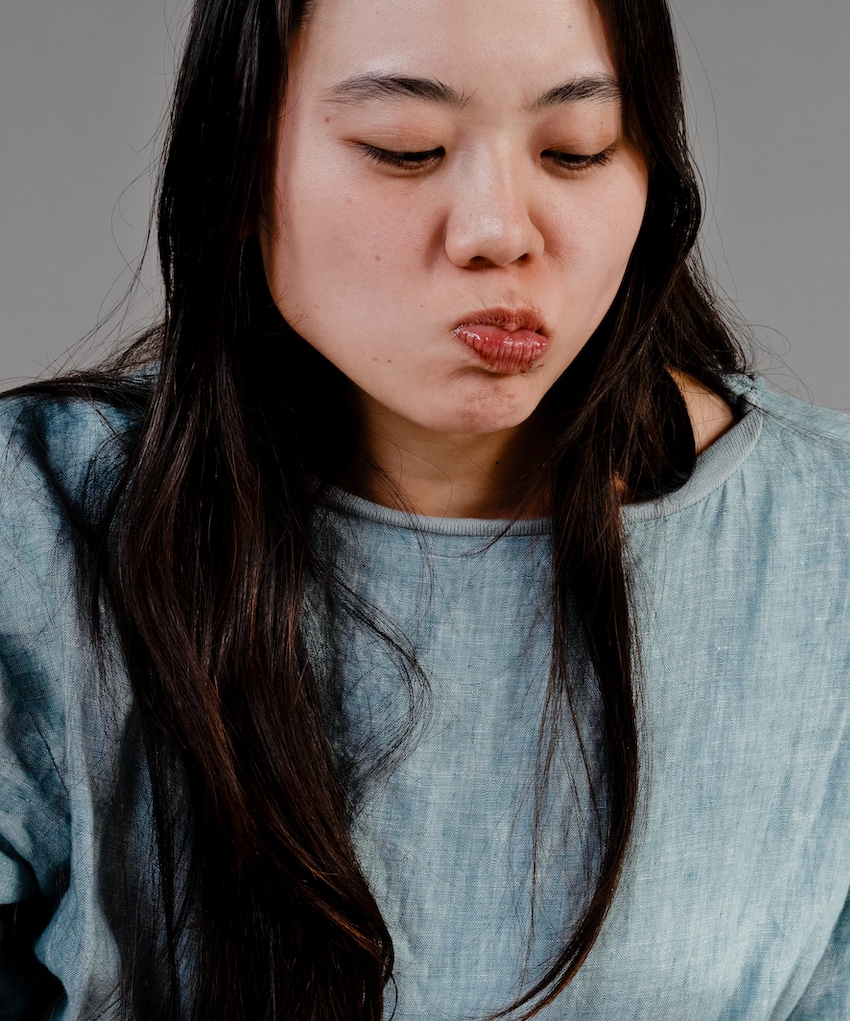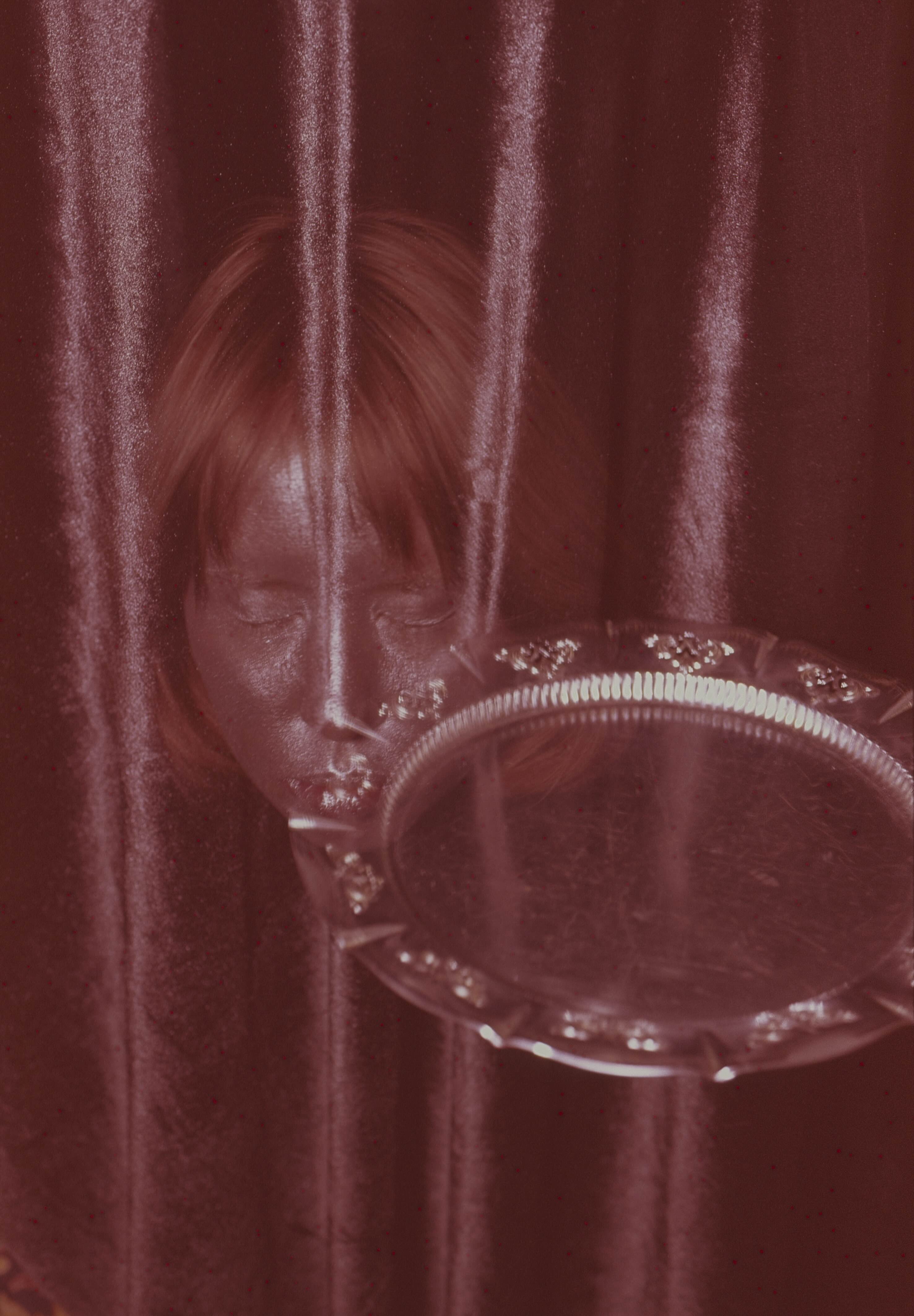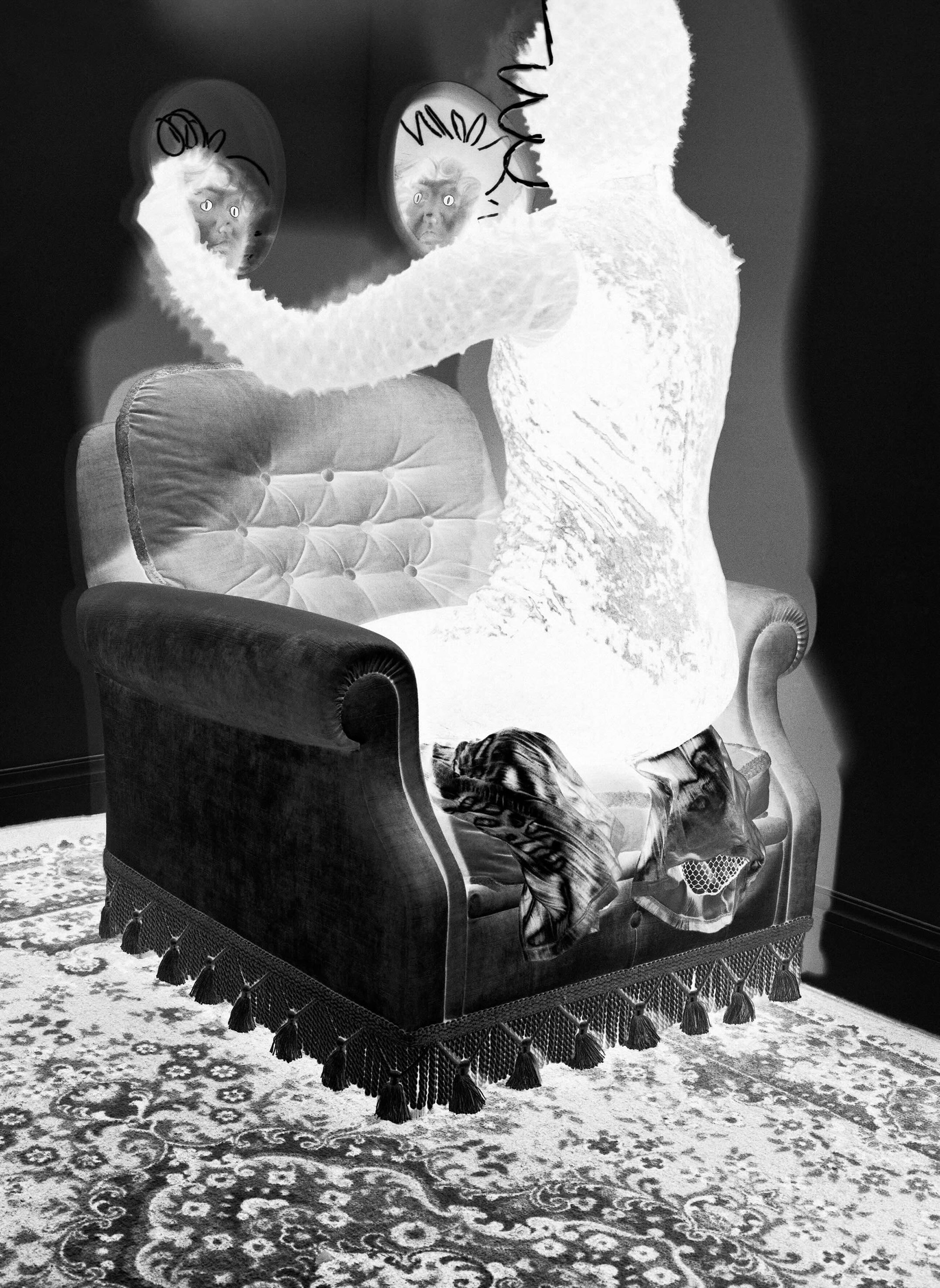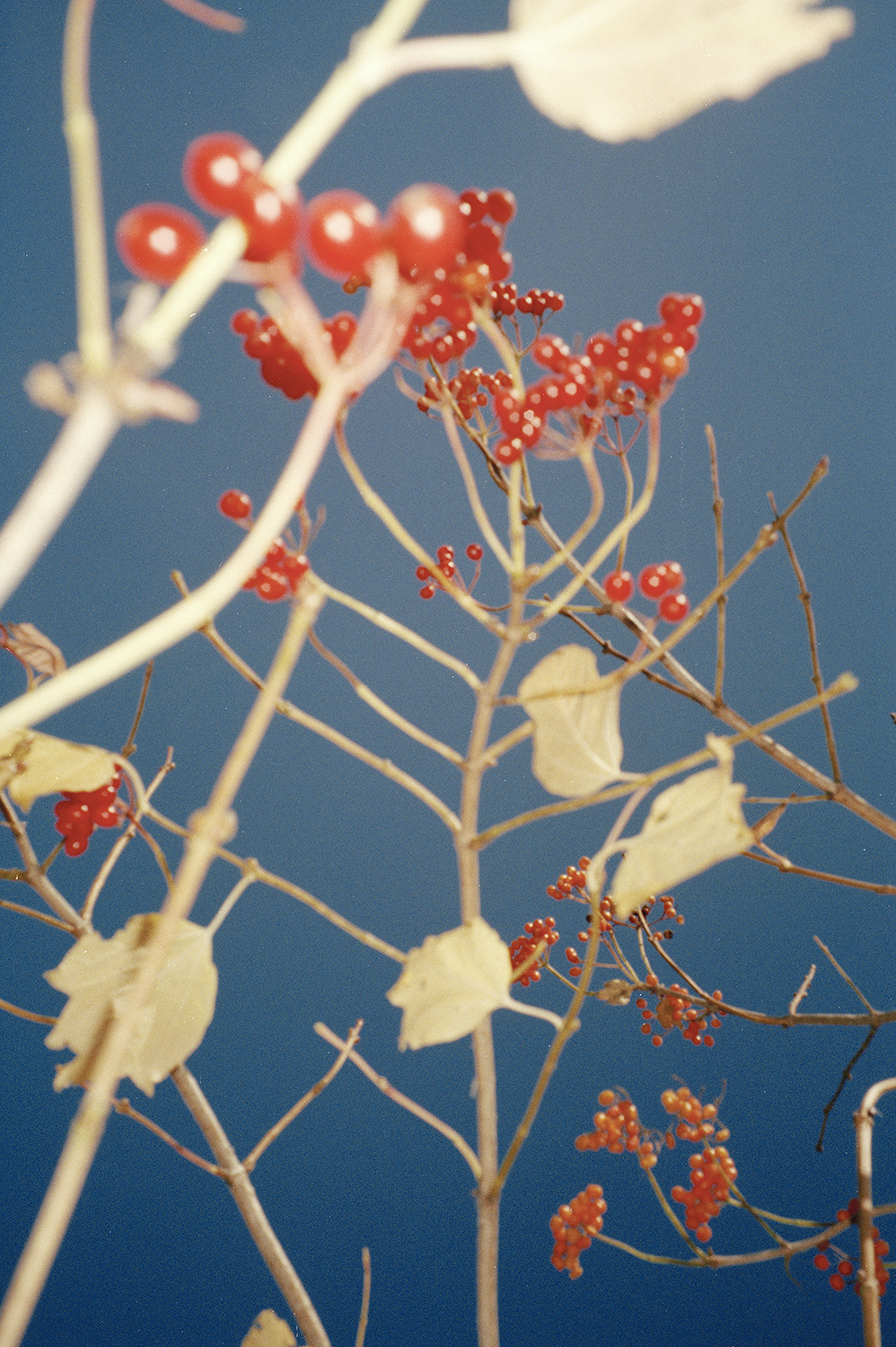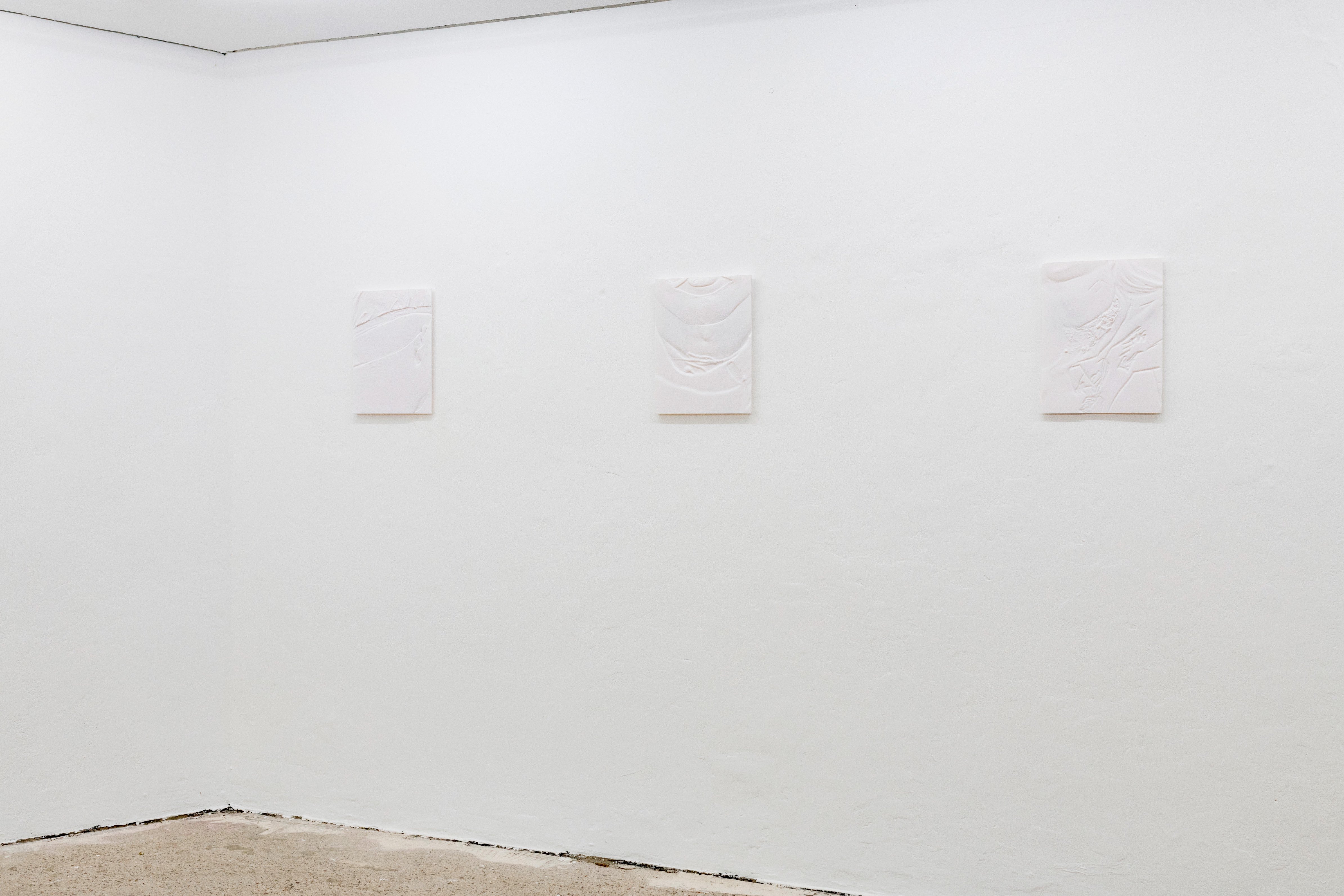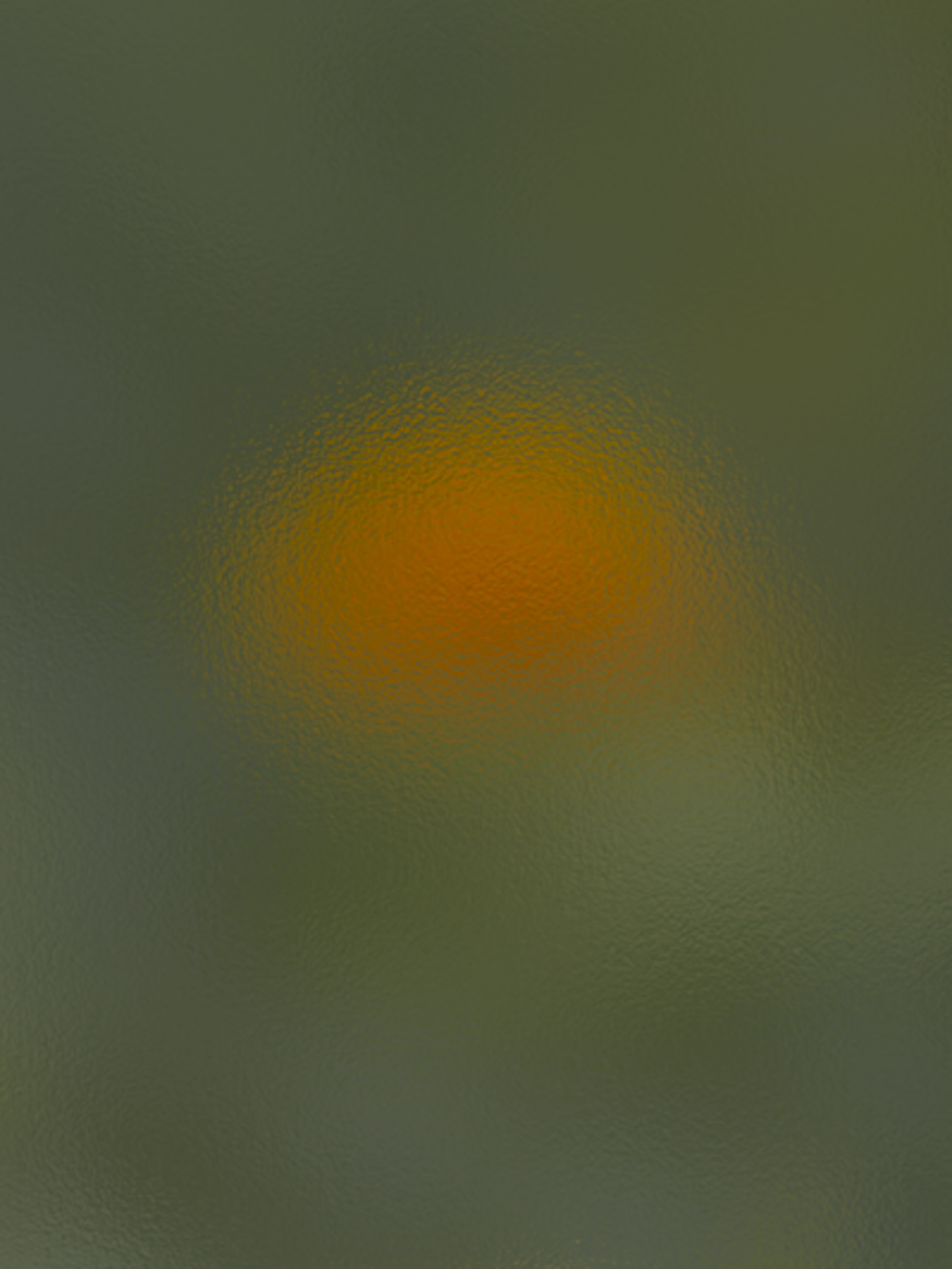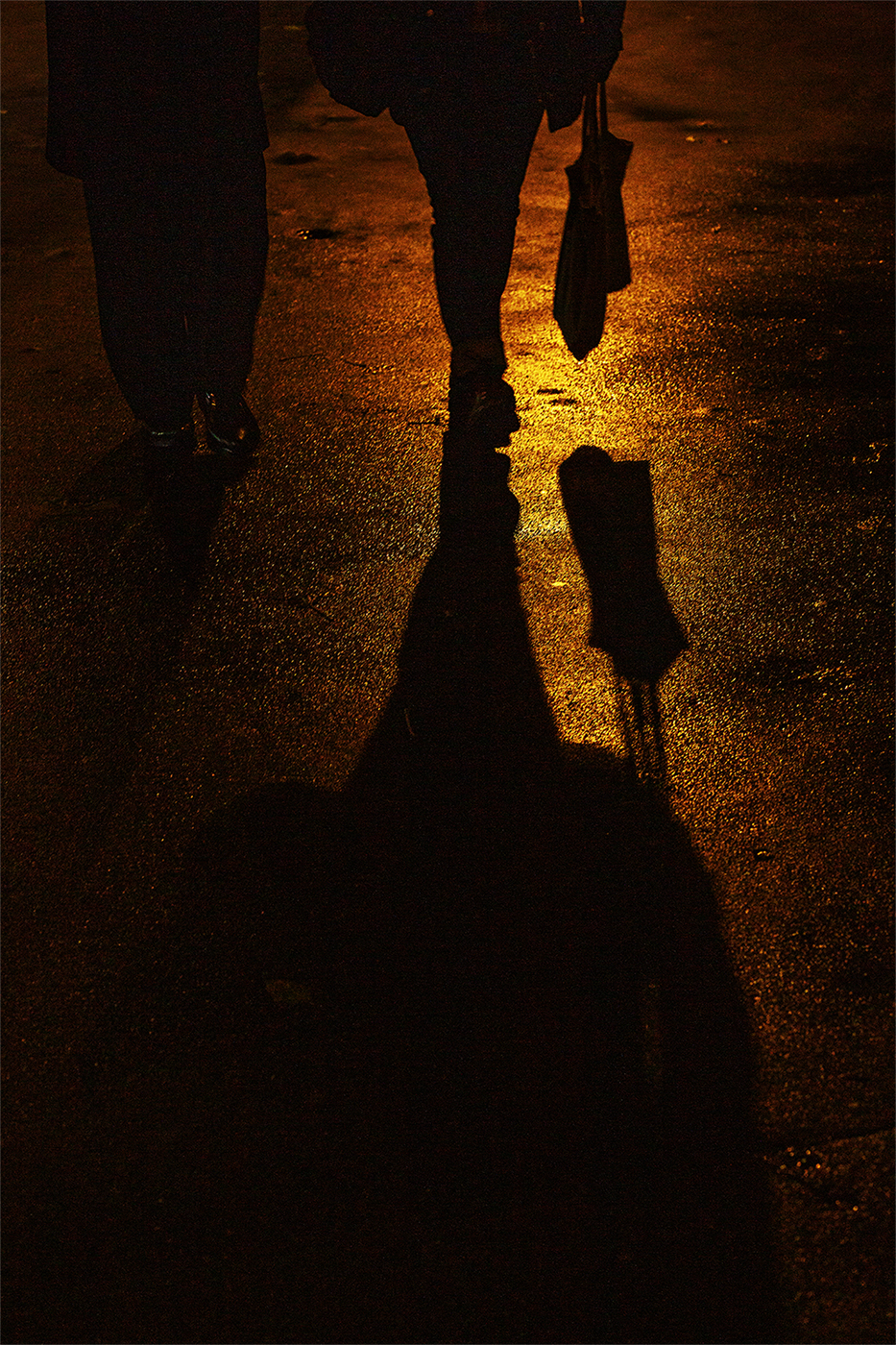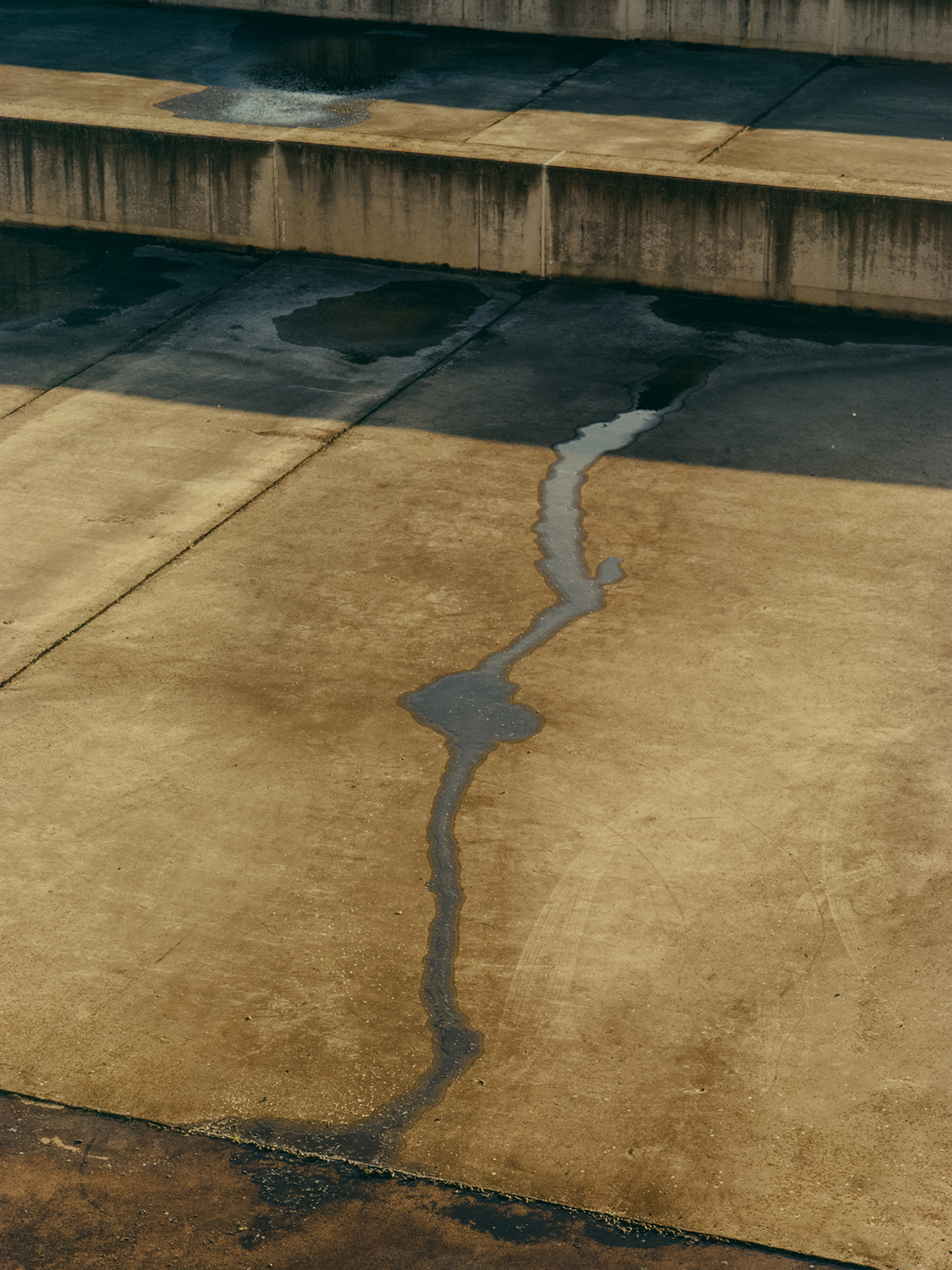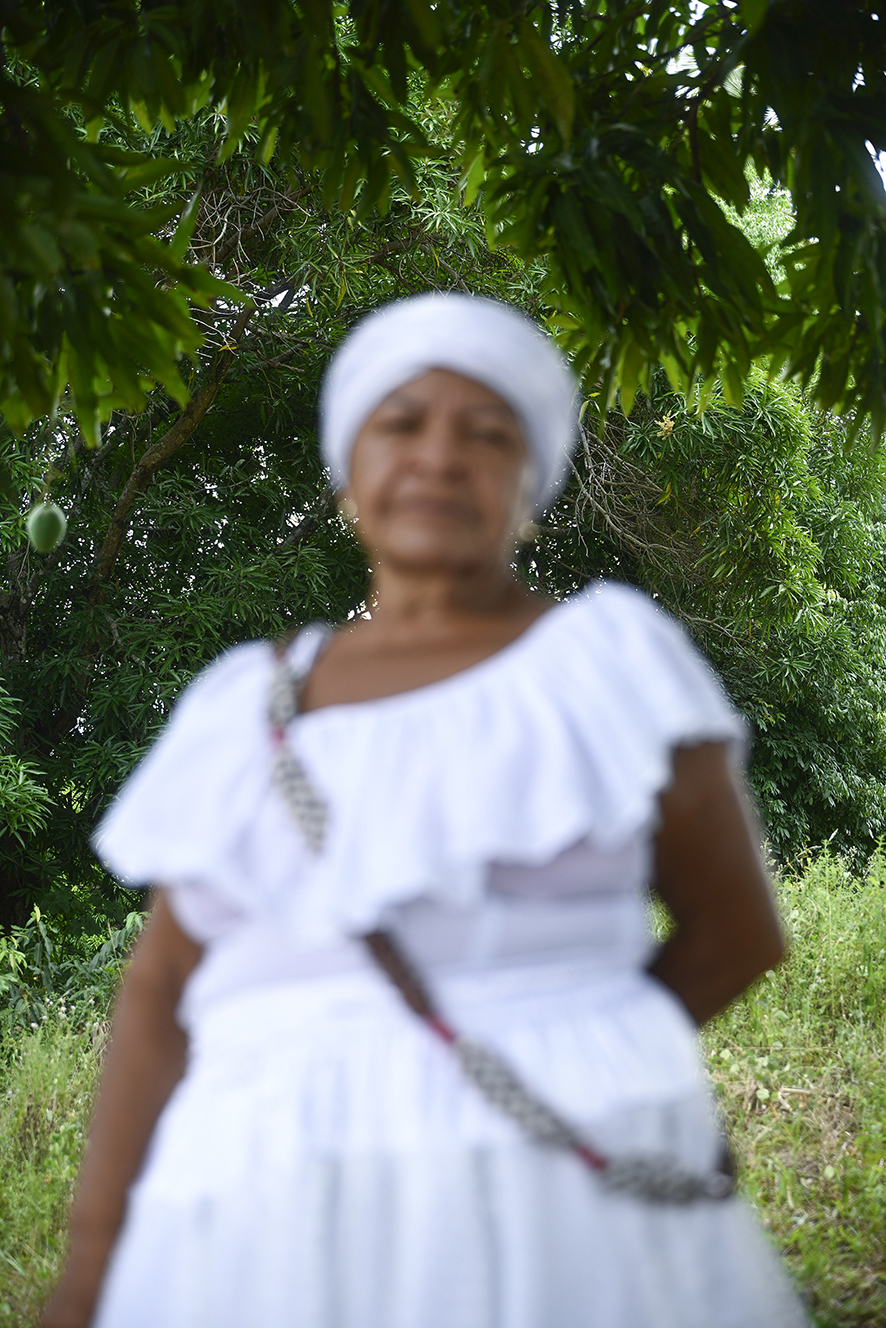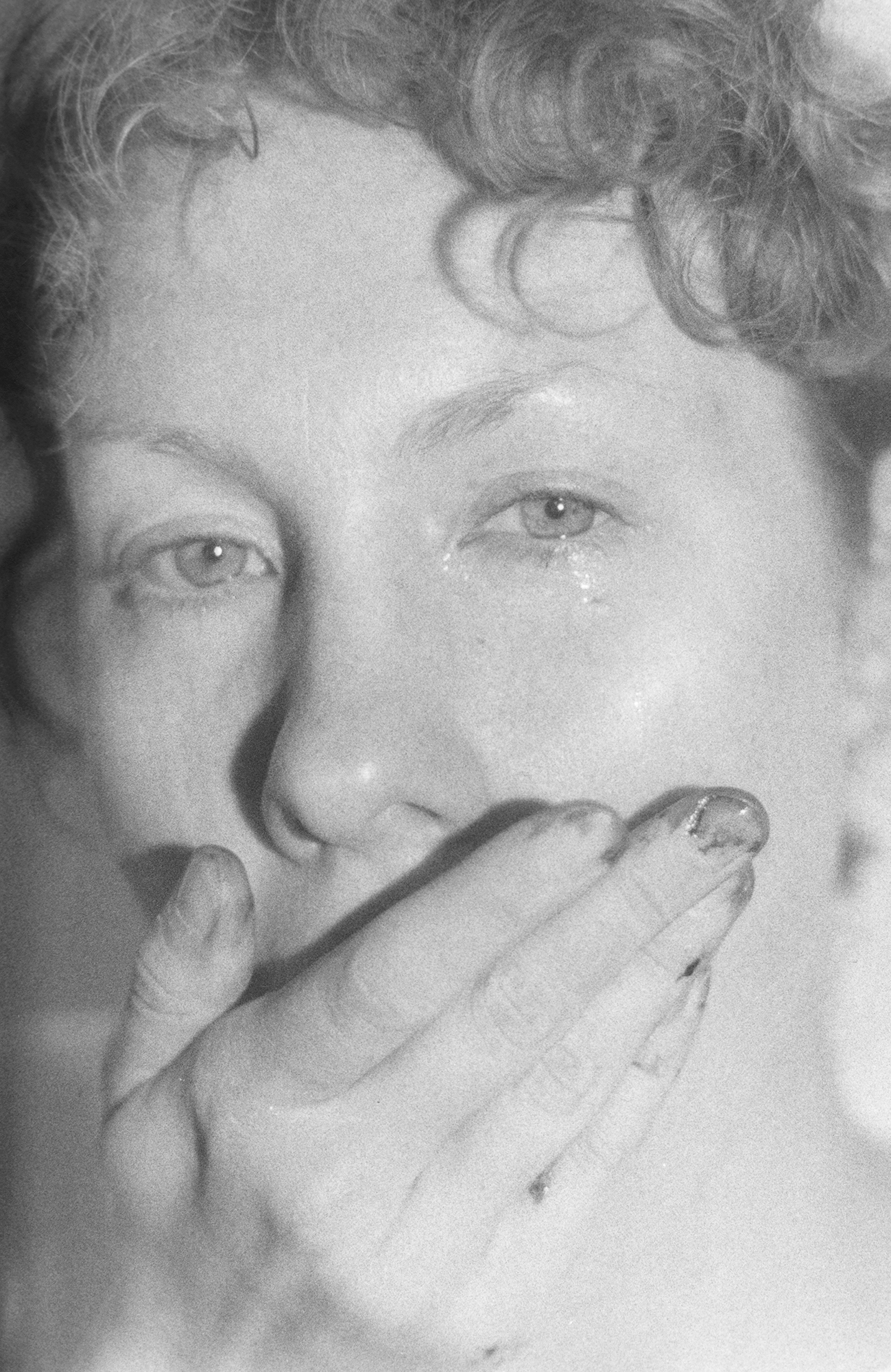Fractal
Maria Beatriz de Vilhena
Nominated by
Bienal Fotografia do Porto

Fractal consists in a parallel reading of a territory, in this case, Lisbon, through the heterogeneity of its religious communities, and the different manifestations of faith and worship.
I am interested in aspects of human nature that I cannot understand or fully grasp, that don’t belong to me, or to which I do not belong. Faith, being one of the great, if not, the greatest mystery of an individual imagination is, at the same time, an apex of collective identity.
Based on a desire to understand something that I cannot intuitively find tangible, I’ve made use of photography as a consistent means to be present and delve into various religious communities. What I found, what attracted me, was not just the differences in rituals, practices, cultures, iconographies, and even languages, but instead, what was indeed shared and common to all. Thus, the choice to not centre the narrative around portraits that revealed the identity of each believer, but instead to represent the ethereal and oneiric, and in the end, the universal.
My understanding of faith not as a common belief but ultimately as a common human need, as a horizontal element, not individualizing the name that each of them may claim, relates to the conclusion that each religious belief system is but a different attempt to offer or unveil an answer to a common and universal question.
Fractal, being an element of the field of mathematics, is a geometric figure found in nature and which is composed of an object whose separate parts repeat the features of the complete whole, representing the original entity. In truth, I find myself much further away from each one of them than they are from each other. Deep down, it represents a foreign gaze onto an intimacy in which I do not participate.
I am interested in aspects of human nature that I cannot understand or fully grasp, that don’t belong to me, or to which I do not belong. Faith, being one of the great, if not, the greatest mystery of an individual imagination is, at the same time, an apex of collective identity.
Based on a desire to understand something that I cannot intuitively find tangible, I’ve made use of photography as a consistent means to be present and delve into various religious communities. What I found, what attracted me, was not just the differences in rituals, practices, cultures, iconographies, and even languages, but instead, what was indeed shared and common to all. Thus, the choice to not centre the narrative around portraits that revealed the identity of each believer, but instead to represent the ethereal and oneiric, and in the end, the universal.
My understanding of faith not as a common belief but ultimately as a common human need, as a horizontal element, not individualizing the name that each of them may claim, relates to the conclusion that each religious belief system is but a different attempt to offer or unveil an answer to a common and universal question.
Fractal, being an element of the field of mathematics, is a geometric figure found in nature and which is composed of an object whose separate parts repeat the features of the complete whole, representing the original entity. In truth, I find myself much further away from each one of them than they are from each other. Deep down, it represents a foreign gaze onto an intimacy in which I do not participate.
The Artist

Maria Beatriz de Vilhena
Nominated in
2024
By
Bienal Fotografia do Porto
Lives and Works in
Lisbon
Maria Beatriz de Vilhena (b. 1991) is a Lisbon based photographer, with a professional background in architecture. She studied photography at CFP Bauer Milan and holds a master's degree in architecture from the University of Lisbon.
Her photographic work explores the pluralism of human nature through belief and collective identity, as well as issues related to memory and noetic. In recent projects, she has been working on the border between fiction and reality, through myths and tales connected to personal and historical events.
Recent shows include One dark night, Lazarus disappeared (Coruchéus Gallery, Lisbon, 2025), Five Relics, Five Photographers (Museum of São Roque, Lisbon, 2025), and Real Life is Not Black and White (Paris Photo, 2024).
Her photographic work explores the pluralism of human nature through belief and collective identity, as well as issues related to memory and noetic. In recent projects, she has been working on the border between fiction and reality, through myths and tales connected to personal and historical events.
Recent shows include One dark night, Lazarus disappeared (Coruchéus Gallery, Lisbon, 2025), Five Relics, Five Photographers (Museum of São Roque, Lisbon, 2025), and Real Life is Not Black and White (Paris Photo, 2024).
More projects by this artist
2024
They sold the farm. And left.
This is a project about identity, memory, and the geography in between.
I am investigating my roots along the Portuguese-Spanish border in a rural and pagan backdrop. I retraced familiar footsteps, searching for traces, a common geography, and the characteristics of this ancient territory.
This story is part of a longer narrative, about family myths and tales, and the starting point of this investigation is my great-grandfather, the last family member born in Galicia. From his family's farm, he saw the river, and on the other side Portugal, so he decided to leave at age 14 never to return.
I was only there once, as a child, in a failed attempt to reconnect with the family. I returned now with my parents, only to see the farm sold, and no more traces besides the family nameplate on the cemetery.
I am investigating my roots along the Portuguese-Spanish border in a rural and pagan backdrop. I retraced familiar footsteps, searching for traces, a common geography, and the characteristics of this ancient territory.
This story is part of a longer narrative, about family myths and tales, and the starting point of this investigation is my great-grandfather, the last family member born in Galicia. From his family's farm, he saw the river, and on the other side Portugal, so he decided to leave at age 14 never to return.
I was only there once, as a child, in a failed attempt to reconnect with the family. I returned now with my parents, only to see the farm sold, and no more traces besides the family nameplate on the cemetery.
Similar projects by everyone else
Newsletter















